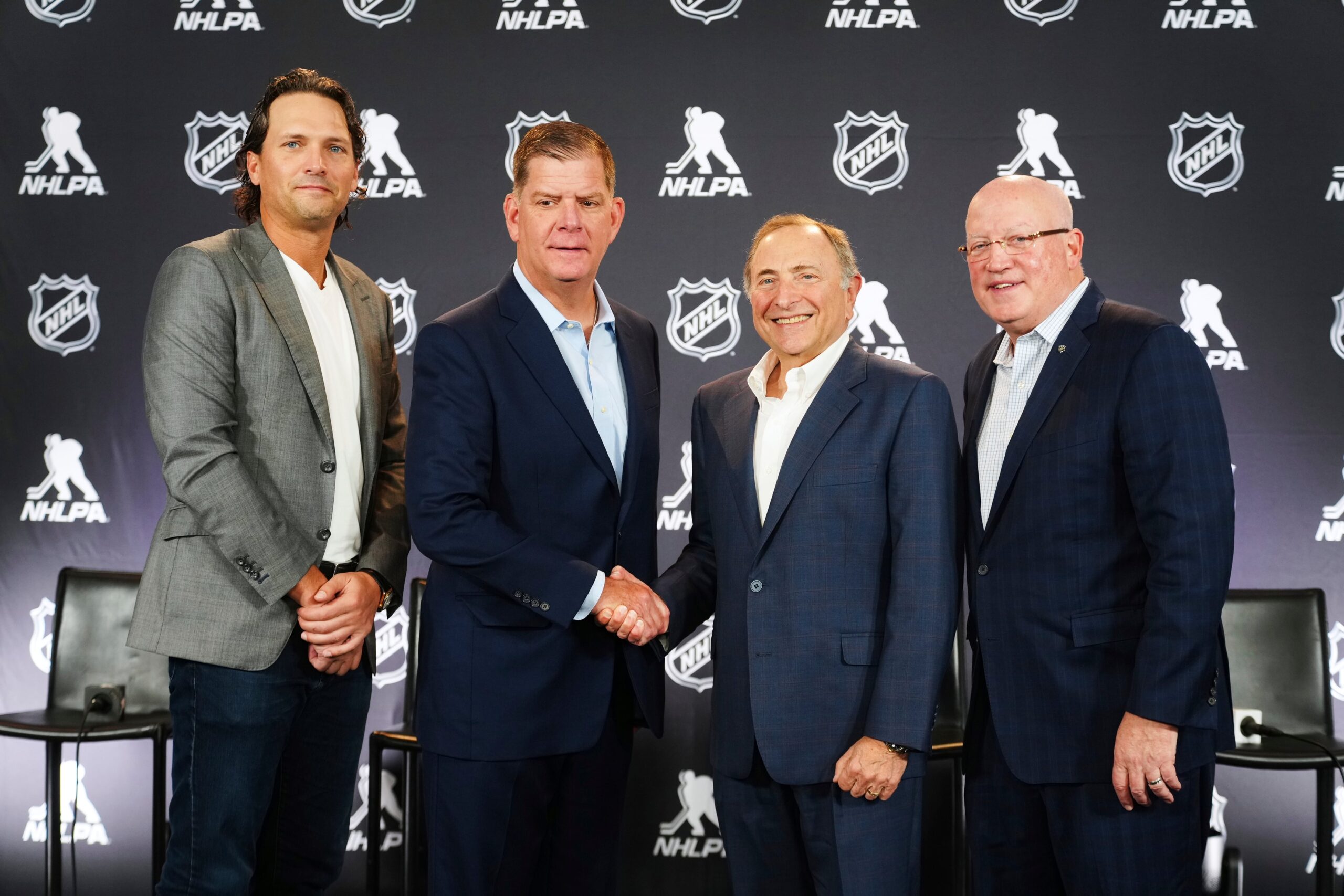By ratifying their extension of the collective bargaining agreement, the NHL and NHL Players Association have guaranteed labor peace in the sport through 2030.
The agreement was ratified, the league and union said in a joint news release on Tuesday. The Board of Governors and the entire NHLPA membership had to vote on it.
According to NHL Commissioner Gary Bettman, the league and the Players Association have a better cooperation than ever before, and working together under this agreement offers a great chance to further expanding the game. We appreciate the Board of Governors’ backing of this deal, which improves our game and guarantees that we are all working together to provide an amazing fan experience in the years to come.
Late last month, the parties reached a provisional agreement on the four-year extension. A playoff salary cap, a shorter maximum contract length, an 84-game regular season with less exhibition play, no required player attire, and the establishment of a full-time traveling goaltender position to do away with the practice of emergency backup goalies, or “EBUGs,” entering games are just a few of its provisions.
Longtime Colorado Avalanche EBUGBen Hause wrote on social media, “I’m largely happy for uninterrupted hockey for, at least 5 more years, but this likely means my swan song is coming up.”
The 2026–2027 season marks the implementation of it and the other modifications.
This CBA demonstrates what can be achieved when the union and the NHL collaborate to reach a deal that will support the game’s ongoing global expansion. According to NHLPA executive director Marty Walsh, that is a victory for all. Without the participation and encouragement of our athletes, we would not have been able to accomplish this result. Our negotiating committee and executive board deserve special recognition.
The NHL and NHLPA’s collaboration, which resulted in the 4 Nations Face-Off earlier this year and cleared the path for the resumption of Olympic participation in 2026 and 2030, is shown by the speed with which an agreement was reached after talks started in April. Independently, Walsh and Bettman had stated that no significant obstacles stood in the way of a CBA extension.
Compared to previous decades, such as the 2012–13 lockout, which resulted in that season being shortened to 48 games, it is much different. A lockout that focused on the imposition of a salary cap ruined the entire 2004–05 season.
The initial ceiling of $39 million has been reduced to $95.5 million for the upcoming season, with larger increases anticipated to reach $113.5 million in 2027–2028. Due to the widespread belief that business is growing and the game is moving in the right direction, owners and players were unwilling to participate in another work stoppage, which is partly explained by record attendance and income.
___
https://apnews.com/hub/nhl is the AP NHL.
